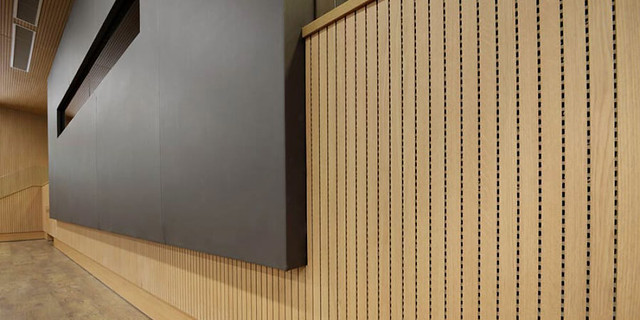Contract Furniture Manufacturing
Contract furniture is designed with a client’s specific needs in mind. This customization ensures the final piece reflects the brand identity and fulfills the functional requirements of a space.
From changing stain colors to upholstering a lounge chair with contrasting fabric, adding additional detailing is one of the most important aspects of contract furniture manufacturing. It elevates the design and helps businesses craft a cohesive ambiance that supports their brand image.
Choosing the Right Materials
The materials used to produce contract furniture are critical to its durability and functionality. Unlike residential or stock furniture, commercial pieces need to be able to withstand heavy wear and tear. In addition, they often undergo cleaning and disinfection on a regular basis. As a result, the furniture needs to be built with materials that are both durable and easy to clean.
To meet the demands of these rigorous environments, contract furniture manufacturers utilize top-tier, high-quality materials. This allows the furniture to be both functional and aesthetically pleasing. In addition, the materials are designed to withstand high-traffic and constant use. Additionally, the furniture is made to be resistant to fire, toxicity and flammability.
The selection of the right materials also plays a key role in the overall cost of the furniture. For example, using locally sourced materials can reduce transportation costs and emissions. In addition, using recycled or renewable materials can help reduce the environmental impact of the furniture.
The expertise of the contract furniture manufacturing company also plays a significant role in the process. The manufacturer must understand the client’s specific needs and desires to transform their vision into reality. This requires a deep understanding of the design and ergonomics of the furniture, as well as an awareness of the latest industry trends. The expert craftsman must be able to translate this knowledge into functional, comfortable and beautiful furniture.
Design Support
Contract furniture designers work closely with architects and interior design professionals to create pieces that meet the specific needs of commercial spaces. This collaboration results in contract furniture that is durable, functional, and aesthetically appealing. It also allows for maximum customisation, ensuring that it aligns with the design and branding of each space.
In terms of fabrication, contract furniture usually uses stronger materials and more contract furniture manufacturing robust construction techniques than residential furniture. For example, wooden contract furniture will typically be fabricated with mortise and tenon joints which are more resilient and can withstand greater forces and loads. Metal contract furniture will often use full fillet and groove welds which are also more resilient and can withstand greater forces.
Durability is a key feature of contract furniture that sets it apart from residential and similar furnishings. It is designed to withstand the heavy use and frequent handling of commercial environments. In addition, it is manufactured using high-quality materials that can withstand the rigours of commercial use and stringent testing procedures.
Moreover, contract furniture is designed with a specific function in mind, whether that be to provide hotel furniture factory comfort and support (ergonomic office chairs) or to facilitate the flow of information in public spaces. It also features integrated technology options such as power points and cable management that support the modern workplace.
Shipping
Transportation and shipping costs are a significant factor in contract furniture manufacturing business operating costs. Shipping costs may include a number of factors including transportation distance, mode of transportation, insurance, and transportation regulations. Transportation and shipping costs can be minimized by negotiating with carriers for better rates, optimizing packaging, and improving operational efficiency.
A quality contract furniture manufacturer should have a clear and concise understanding of the client’s unique needs and goals. They should be able to collaborate with the customer to develop an innovative solution that matches the aesthetic of the space. They should also be able to recommend fabric and building material options that best meet the needs of the environment.
Unlike furniture designed for residential use, items of contract furniture must be able to withstand much more rigorous wear and tear. They are often designed to be more modular, with folding, nesting, and stacking features incorporated. They are also often fabricated with construction methods that are more robust, such as mortise and tenon joints and full fillet and groove welds.
In addition to ensuring quality and durability, contract furniture manufacturers must also comply with local, national, and international laws pertaining to the safety of their products. For example, in order to sell their furniture in the US market, they must adhere to the US Consumer Product Safety Commission’s standards. They must also adhere to environmental laws, such as the US Environmental Protection Agency’s.
Installation
The right furniture and furnishings can make a huge difference in the way your business looks and functions. Contract furniture is usually made from quality materials and precise construction techniques that can stand up to the wear and tear of a busy commercial environment. Durable designs also help to save money over time and keep your spaces looking great for longer.
The most common types of contract furniture are seating options like chairs and benches, lobbies and waiting areas, cafe tables and chairs, and room dividers. They are often designed with user comfort in mind so that people can sit for long periods of time without discomfort. They are also typically made to be durable and functional, with a variety of styles and finishes to choose from.
Furniture is a critical aspect of any hospitality space, and it must be of high-quality and durable construction in order to withstand the heavy usage that hotels, restaurants, and coffee shops experience. In addition, hospitality furniture must also be stylish and attractive in order to appeal to the target audience.
The contract furniture industry is evolving rapidly with the introduction of new technologies like augmented reality to enhance design experiences and improve client collaboration. It is also becoming increasingly aware of its environmental impact, with companies like Steelcase dedicating resources to reducing their carbon footprint and climate change impacts.


